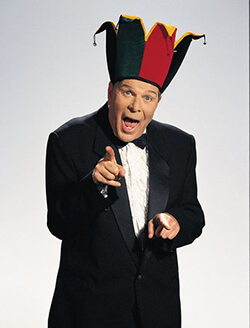Sex and the Singular Pronoun
A graceful solution for a sexist language

In 2015, the singular they/their/them was added to The Washington Post style guide.
In 2017, the Chicago Manual of Style, The Associated Press Stylebook, and the MLA Style Manual deemed they/their/them acceptable in informal English. In 2019, the Merriam-Webster dictionaries accepted they and them as pronouns to refer to a single person whose gender identity is nonbinary, that is, not self-identifying as either male or female. While this decision by the most venerable American dictionary company might cause you to raise an eyebrow, break the point off your pencil, or swallow your chewing gum, I beseech you to read on:
You’re sitting at a table, and after a long time elapses, someone finally brings the food. Why are they called the “waiter”?
I’ve used this quip dozens of times in my talks and asked the audience if anyone has been offended by any grammatical atrocity I have uttered. Almost no one raises their hand.
Please take another look at the previous two paragraphs and note that, in each one, I’ve used a form of they to refer to a singular pronoun — someone, anyone, and no one. Why is this usage ubiquitous? Well, one reason is that we have been doing it for centuries, all the way back to Middle English. It’s been more than 600 years since (in 1387) Geoffrey Chaucer wrote in The Canterbury Tales, “And whoso findeth hym out of swich blame, / They wol come up …”. They as a third-person-singular pronoun abounds in the works of other estimable authors, such as William Shakespeare, William Makepeace Thackeray, and Jane Austen.

It was not until the 18th century that they in its third-person singular role was disparaged. That’s when such grammarians as Robert Lowth and Lindley Murray decreed that they is unfailingly plural.
The reasons for this linguistic holding were more cultural than structural. In 1746, John Kirkby’s Eighty Eight Grammatical Rules included as rule #21 that “the male gender is more comprehensive than the female.”
Thus, we confront the matter of sex and the singular pronoun. While all other pronouns avoid reference to gender, the third-person-singular pronouns in English — he and she — are gender-specific. We are not fully comfortable with the male chauvinist bias intrinsic in “Each student should underline in his textbooks so that he can achieve his fullest academic potential” or the clunky “Each student should underline in his or her textbooks so that he or she can achieve his or her fullest academic potential.” They has long been a graceful solution to the most nettlesome problem in sexist language — the generic masculine pronoun — and to the grammatical stutter engendered by dancing back and forth between the genders, as in “Each student should underline in their textbooks so that they can achieve their fullest academic potential.”
They has been moving toward singular senses, in the manner of you, which functions both singularly and plurally. For a long time, you was strictly a plural pronoun, thou being the singular address. No longer.
Same with they as both a singular and plural pronoun. That’s the way we do it — and by we I mean we caring and careful speakers and writers. We’ve been doing it for centuries, and we’re doing it today:
- Everyone attended the party, and they had a rockin’ time.
- If somebody wants to cut class, we can’t stop them.
- The cellular customer you have called has turned off their phone.
Linguist Gretchen McCulloch explained to the San Francisco Chronicle, “You don’t talk the way Shakespeare did, and people in 500 years won’t talk the way we do because language is something that lives in the minds of individual, living humans. Humans are alive. Languages are alive. And when language is alive, it changes.”
Gentle reader: Please open your ears and eyes. Listen and look for statements that contain an indefinite pronoun or a singular noun and hear and see what pronoun follows. In almost every case, that pronoun will be a form of they. We do that because the device is historically tested. We do that because it is more graceful than “he or she.” We do that because it avoids making a minority of us the linguistic norm and a majority of us a linguistic afterthought. And we do that because nonbinary people are better served by such pronouns.

